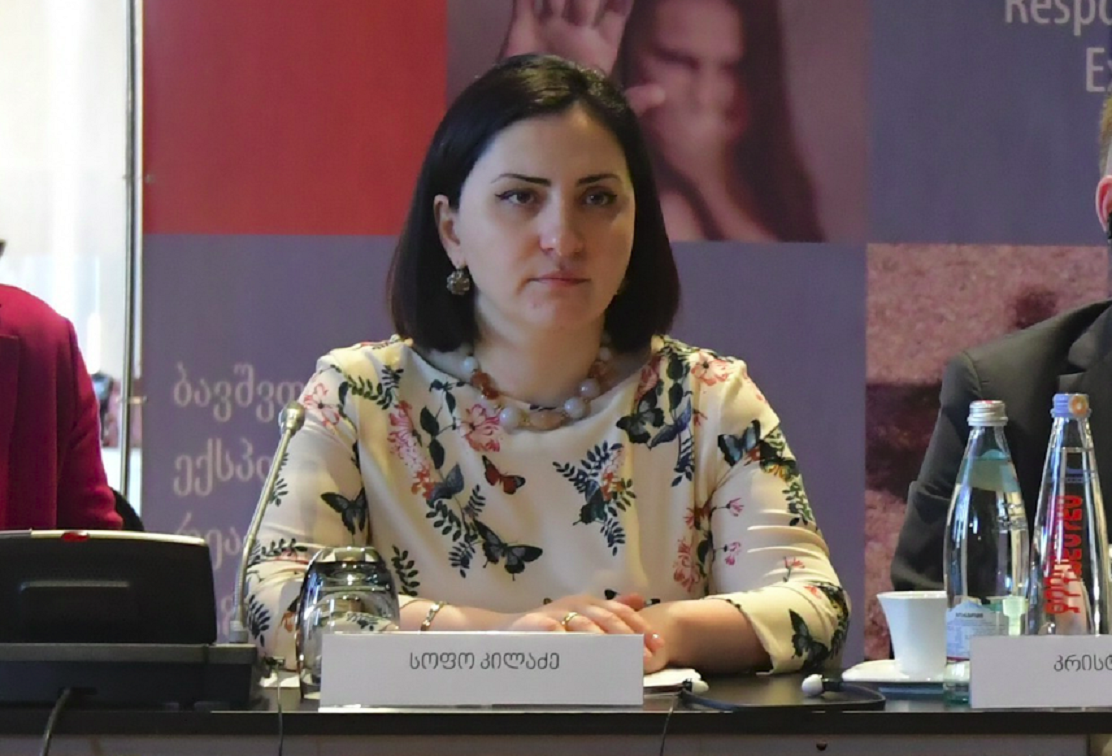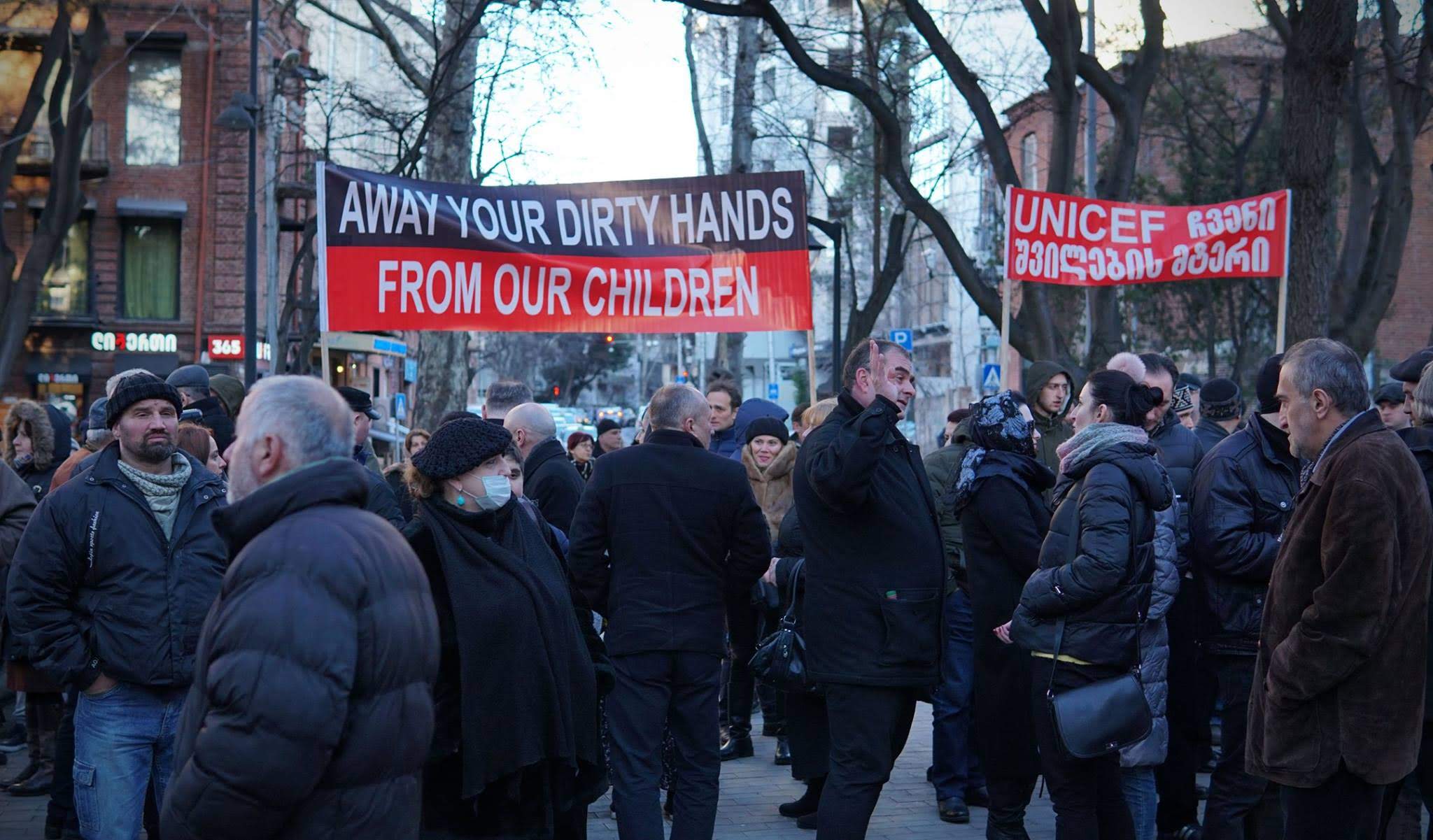

Parents in Georgia will have to opt-in to new sex education classes for their children, the head of parliament’s human rights committee Sopo Kiladze has said.
Kiladze, who authored the draft Code on the Rights of the Child, promised during the code’s first hearing on Tuesday that there would be no sex education in Georgian schools without parents’ prior approval.
The original bill, developed with UNICEF and submitted to parliament in February did not include a requirement for parents to opt in.
Other changes since the bill was submitted included references to ‘homeland’ and ‘traditional cultural values’.
A spokesperson for UNICEF said they could not comment until the full changes were made public.
Speaking before the committee, Kiladze said sex education ‘would be permissible only — and only with parents’ consent and based on a request from a family. Clergy, Orthodox Christians, and others would have the right to participate in the decision-making process upon a family’s request in specific crisis situations’,.
She countered claims from ultra-conservative groups present at the hearing that the code would allow the state to ‘violate the autonomy of Georgian families’ and to ‘legalise debauchery’ through sex education lessons in schools.
Khatia Akhalaia, who was targeted with online threats in February for her organisation’s online sex education videos, criticised the clergy’s role in the decision-making process.
‘Is a priest a child psychologist, a gender researcher, an expert in these issues? Their intervention will cause a number of issues to be left out [of the curriculum]. If we don’t teach children in schools how to face real problems and solve them, you can call it whatever you want — sex education or religious teaching!’, Akhalaia wrote on her Facebook page.
Davit Isakadze, a prominent Archbishop who has been close to the ultra-conservative Union of Orthodox Parents, said during the hearing that Georgian ‘non-governmental organisations which are financed from abroad should not be allowed to intervene in Georgian family life or the relationship between a parent and a child’.
Conservative backlash
According to its authors, the Code on the Rights of the Child aims to create an ‘integrated system’ of support and protection for children’s rights, covering all the areas related to childhood.
The code, prepared by Kiladze’s Committee with the help of UNICEF, caused controversy before it even reached parliament for its preliminary hearing on 4 March.
On 3 March, several dozen ultra-conservative activists protested UNICEF’s efforts and advocacy for the bill in front of the UN House in Tbilisi, demanding it be withdrawn from parliament.

The following day, and again on 26 March, the conservative Society for the Protection of Children’s Rights group mobilised activists, including Georgian Orthodox priests, to attend the public hearings in parliament.
Following the preliminary hearing on 4 March, prominent ultra-conservative activist and one of the leaders of the far-right Georgian March, Dimitri Lortkipanidze, said that parliament was about to ‘criminalise the traditional family’ with a new ‘inquisition bill dictated by UNICEF’.
On 11 March, Ghassan Khalil, the UNICEF Representative in Georgia, met the leader of the Georgian Orthodox Church, Patriarch Ilia II, to discuss the Child’s Rights Code. Khalil assured him that ‘for UNICEF, the family is crucial for a child’s well-being and development’.
In their mid-March publication, Christian portal Zneoba.ge, which is widely shared among ultra-conservative activists, insisted that the Code would ‘restrict a parent from even making a child stand in the corner’ as a punishment.
They also called the principle of prioritising the best interest of a child, mentioned in Article 5 of the Code, a reflection of 2010 recommendations from the Council of Europe to member states on measures to combat discrimination on the grounds of sexual orientation or gender identity.
Conservative activists have also opposed any mention of ‘gender’ in the Child’s Rights Code.
During 26 March’s hearing, several conservative critics complained that it would be wrong to classify ‘slapping a child’ as violence.
Homeland and responsibilities
In defence of the new bill, Kiladze lauded the package on Tuesday for ‘including [the word] homeland for the first time’ in Georgian law. According to her, the Code would ‘orient a child towards respecting their homeland, native language, own country, and traditional cultural values’.
These were also not a part of the original draft lodged in February.
‘How can all of these be anti-national? Of course they can’t’, Kiladze said during her speech.
‘A certain part of [Georgian] society — and it is in fashion now — acknowledges rights only, while we frequently forget that they come with duties. If we want a strong society, we have to teach people their rights together with their duties and the responsibility that they bear before their homeland, society, and families’, Kiladze said.
Protecting children from Blue Whales and nightclubs
Kiladze also argued that the code would address violence towards children as well as among children, which according to her, ‘have reached unimaginable scales’. She also lauded the new package proposal for offering ‘efficient mechanisms to protect a child from dangers coming from the internet and mass media’.
‘It is not right that “blue whales” and calamities like these are accessible to children [online]’, Kiladze said during her speech in the committee.
‘Blue Whale’, a supposed game through which anonymous internet users, presumed to be adults, target teenagers, challenging them with various tasks, the last of which is to commit suicide.
Following reports in Georgian media that referred to the game as a possible cause of individual suicides among teenagers, the Interior Ministry announced in May 2017 they were looking into the claims, only to conclude after several months that the game did not exist in Georgia.
Kiladze, head of the Parliament’s Human Rights Committee, also announced that the Code would ‘restrict children [under 18] from entering nightclubs after 18:00 without a parent or legal guardian’, with an absolute ban after midnight.









